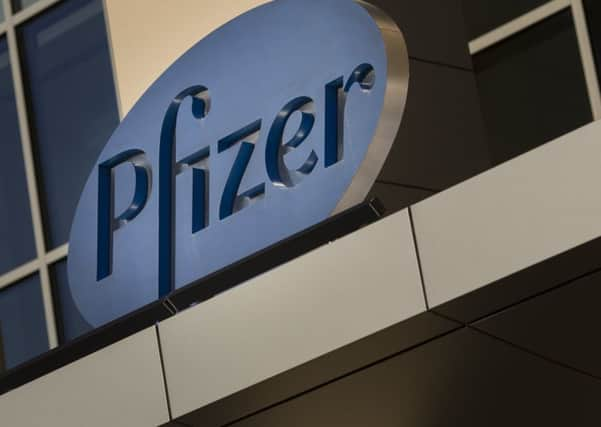Kevan Christie: Dementia decision shows Big Pharma's hunger for profit


A glib statement put out by the company lays bare the realities of so-called Big Pharma, where profit is the key driver and the appetite for throwing billions of pounds into an as-yet fruitless quest for a miracle dementia cure has gone.
Pfizer says its decision to concentrate on other research represents a reassessment of the value of working on such complex neurological diseases. “This was an exercise to re-allocate spend across our portfolio, to focus on those areas where our pipeline and our scientific expertise is strongest,” it says.
Advertisement
Hide AdAdvertisement
Hide AdSo, in other words, continued research into failed treatments for the likes of Alzheimer’s and Parkinson’s is not an earner.
To be fair, the company has poured billions into trying to find treatments for neurological diseases. Several drugs have made it to the final stage of trials, only to be shown not to work, including Pfizer’s own bapineuzumab and gantenerumab from Roche.
It’s not hard to imagine how these losses play out in the Pfizer boardroom with major shareholders to appease.
Alzheimer’s charities have expressed understandable disappointment with an ageing population set to increase the number of people suffering from such illnesses.
New figures from Parkinson’s UK show that more than 12,000 Scots are now living with the disease and this number is expected to double within 50 years as the population grows and ages.
We are constantly being lectured on the importance of not ignoring the ‘ticking timebomb’ that is neurological disease with an estimated 46.8 million living with Alzheimer’s across the globe.
More people are receiving diagnosis of dementia than ever before and doctors have a better understanding of what happens when a person with dementia approaches the end of life, but still no cure exists.
The knock-on effect of an ageing population means that more people are living for longer in ill health.
However, it’s not all gloom and doom.
Advertisement
Hide AdAdvertisement
Hide AdNot all pharmaceutical companies have thrown in the towel on research into neurological illness and more than 100 clinical trials are currently on the go, according to Professor Tara Spire-Jones, a neuroscientist at Edinburgh University.
Pfizer has said that it also plans to create a new fund dedicated to neuroscience research in the future and The Alzheimer’s Society has committed £50 million to fund new research at the UK Dementia Research Institute, involving experts from Alzheimer’s Research UK and the Medical Research Council.
The problem is the huge sums of money involved mean that outside of Big Pharma few institutions and governments, for that matter, have the necessary funds to pursue possible treatments. Step up billionaire philanthropist Bill Gates who recently invested $50m into a dementia discovery fund motivated by personal experience of Alzheimer’s in his family. Hopefully, this kind of goodwill gesture will help chip away towards the ultimate goal of finding a cure. But until a breakthrough is made, the danger exists that further Big Pharma companies will follow Pfizer’s lead.